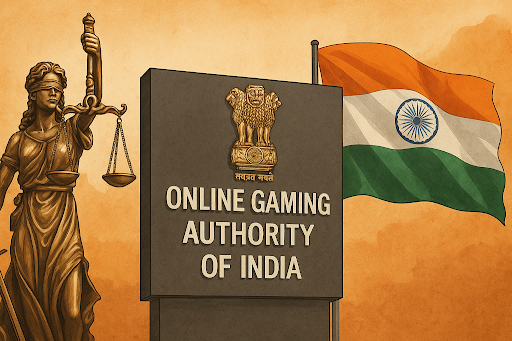India Drafts Online Gaming Authority, Confirms Real-Money Ban

India has moved to operationalise the Promotion and Regulation of Online Gaming Act, 2025 with draft rules that both shut the door on online real-money gaming and lay out a regulatory path for social games and esports. Published by the Ministry of Electronics and Information Technology (MeitY) on 2 October, the Promotion and Regulation of Online Gaming (PROG) Rules, 2025 are open for public comment until 31 October.
What the draft rules do
The rules activate the core provisions of the PROG Act passed during the Monsoon Session of Parliament. They impose a blanket prohibition on online “money games,” defined as any offering involving wagering, staking or cashable rewards—covering popular real-money formats such as poker, rummy and fantasy sports. At the same time, they formalise a compliance route for legitimate social games and esports, which may operate if they meet certification standards laid out under the framework.
MeitY has opted to consult publicly after earlier signalling that consultation might not be necessary, acknowledging stakeholder concerns as it finalises the implementing detail.
Online Gaming Authority: powers and composition
At the centre of the regime is a new statutory corporate body, the Online Gaming Authority of India. It is empowered with civil court-like powers to conduct investigations, summon individuals and enforce compliance orders. Among its responsibilities are registering online social games and esports, maintaining a national registry of certified titles, determining whether a given title falls into the banned “money game” category, directing financial institutions to block illegal platforms and imposing penalties or suspending registrations for violations.
The authority will be headquartered in the National Capital Region. It will be chaired by a senior official (Additional Secretary or Joint Secretary rank) from the IT Ministry, with other members representing the ministries of youth affairs and sports, information and broadcasting, and financial services.
Registration, user protections and transitional refunds
Registration is mandatory for any online game—social or competitive—to operate legally. Certified games will receive registration valid for up to five years, while unregistered titles cannot be advertised or promoted as legitimate offerings. To protect users, registered platforms must run a grievance redressal mechanism. Unresolved complaints can be escalated to a dedicated grievance appellate committee and, ultimately, to the authority itself. Both escalation stages are bound to resolve disputes within 30 days.
For users holding balances at the moment the framework takes effect, the draft includes a transitional clause: refunds of funds held prior to enforcement may be processed without those transactions being construed as support for illegal gaming. That refund window would remain open for 180 days from the date the Act comes into force.
Penalties and timeline
Violations attract significant penalties. Operating or enabling online money gaming can lead to imprisonment of up to three years and fines up to ₹1 crore. Advertising such services can draw up to two years in prison and fines up to ₹50 lakh. With consultation now underway, the Centre is expected to finalise and implement the rules shortly, reshaping India’s digital landscape with an emphasis on consumer safety alongside space for certified innovation in social gaming and esports.
Source: India Proposes Online Gaming Authority, Finalises Real Money Gaming Ban, LCB.org, October 4, 2025.








